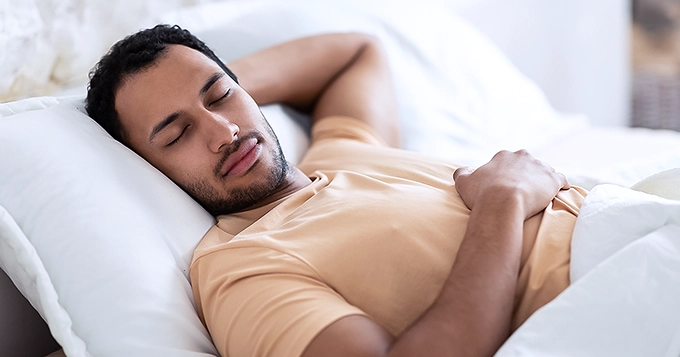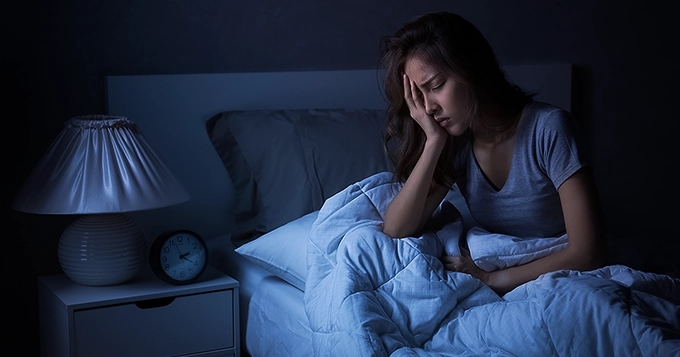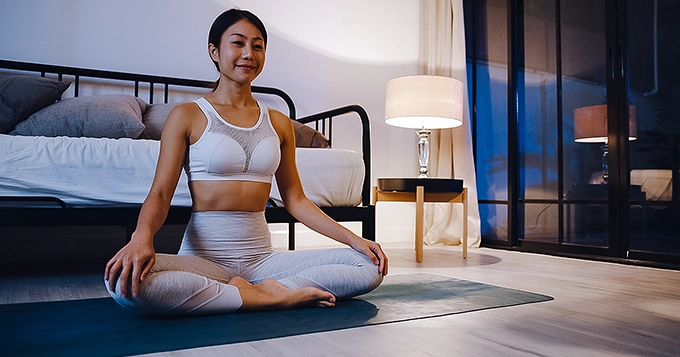In our busy lives, where work, family, and obligations dominate, we might not prioritize sleep enough. But did you know that regular exercise could be the key to a better night’s sleep? Let’s explore the link between working out and the sweet dreams that follow.
Factors Influencing Sleep Quality Through Exercise
The Chemistry of Sleep
Have you ever wondered why you feel so good after a workout? It’s because exercise causes your body to release endorphins, which are natural chemicals that make you feel happy and relaxed. At the same time, stress hormones take a break. This chemical dance not only lifts your mood but also helps set the stage for a more peaceful and restful sleep later on.
Timing is Key
While exercise is great for sleep, timing is crucial. Doing intense workouts right before bedtime might leave you feeling more awake than asleep. It’s best to exercise earlier in the day, giving your body enough time to relax and unwind before bed. This way, you’ll be more likely to fall asleep peacefully.
Body’s Rhythm
Your body clock, called the circadian rhythm, controls your sleep and wake cycles. Regular exercise can help align this natural rhythm, signaling to your body when it’s time to be alert and when it’s time to relax. By following this natural pattern, you’re more likely to enjoy deeper and more restful sleep.
Prevent Insomnia
If you’re struggling with insomnia, consider making exercise a new friend. Research shows that regular physical activity can be a game-changer for those dealing with sleep problems because reasons:
- Physical activity increases melatonin production, which is a hormone that assists you in falling asleep and sleeping better.
- It regulates body temperature. The initial rise in the body temperature during exercise helps in the eventual drop of 30 to 90 minutes after exercising, helping you fall asleep faster.
- Stress is one of the factors for disruptive sleep. Exercising can help reduce stress.
Healthy Mental Health
The connection between mental health and sleep quality is strong, and exercise is a powerful remedy for stress, anxiety, and depression. By making regular workouts a part of your routine, you’re not just strengthening your body but also giving your mind a chance to relax. A happy mind is crucial for getting a good night’s sleep.
Working Out Before Bed: Pros and Cons
Pros:
1. Body Temperature Regulation: Exercise for sleep increases your body temperature, and as you finish, your body temperature drops. This signals your body that it’s time to cool down and prepare for sleep.
2. Relaxation and Stress Reduction: For some people, a light evening workout can help them unwind and release the stress accumulated during the day. This physical activity can act as a natural stress reliever, potentially improving overall sleep quality.
3. Muscle Recovery and Growth: Nighttime workouts can aid in muscle recovery and growth. During sleep, the body undergoes repair processes, and exercising before bed may stimulate this process, helping your muscles recover and grow stronger.
4. Time Efficiency: For those with busy schedules, working out before bed might be a practical solution. It allows individuals to fulfill their fitness goals without sacrificing time during the busy daylight hours.
Cons:
1. Increased Alertness: Intense or vigorous exercise before bed may lead to increased alertness. The adrenaline rush and heightened heart rate associated with intense workouts can leave individuals feeling more awake, making it challenging to transition into a relaxed state conducive to sleep.
2. Sleep Disruption: While moderate exercise can promote better sleep, overly strenuous workouts might disrupt the natural progression of sleep cycles. This disruption can result in a less restful night, even if you manage to fall asleep promptly.
3. Body Temperature Maintenance: While a drop in body temperature after exercise can signal sleep readiness, some people may find it challenging to maintain a comfortable temperature throughout the night. The initial cooling effect might wear off, leading to discomfort during sleep.
4. Individual Variability: The impact of evening workouts on sleep can vary from person to person. Factors such as individual circadian rhythm, fitness levels, and personal preferences all play a role. It’s crucial to pay attention to your body’s signals and adjust your routine accordingly.
5. Potential Disruption to Evening Routine: For individuals who prefer a relaxing evening routine as part of their wind-down process, a late-night workout might disrupt these habits. Establishing a consistent bedtime routine is often recommended for promoting healthy sleep patterns.
Conclusion
To live a healthy and satisfying life, pay attention to the importance of a good night’s sleep. Regular exercise isn’t just about building your body; it also plays a vital role in improving the quality of your sleep.
From the release of endorphins to synchronizing with your body’s natural rhythm, exercise helps prepare your body for a peaceful night’s sleep.
Remember that combining regular exercise and sleep of good quality can transform your nights into rejuvenating and restful experiences.








